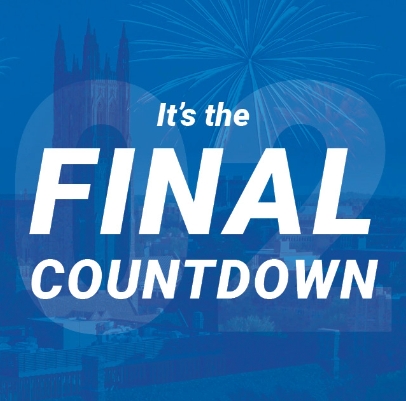Honoring the legacy of half a century of service: William W. Johnston MD’59 and Charles R. West
Together, William W. Johnston, MD’59, and Charles R. West have a more than half a century of combined service to Duke University. To be in their presence is to be regaled by one astonishing and often hilarious story after another.
And yet they say their most recent undertaking—establishing an estate gift that will endow a professorship and multiple fellowships in the Duke University Department of Pathology—is by far the most fun.
“It took us years to make a decision, but this is one of the happiest things we have ever done,” says Johnston. “To see how we can make a difference in the department is a true joy.”
Johnston joined the Department of Pathology after completing medical school and residency at Duke. At the time, the department was small and had limited resources. “Unlike surgery or medicine, pathology is a department without grateful patients,” says Johnston. “Yet it is vital. All of medicine is buttressed by pathology.”
Over the course of a distinguished career, Johnston worked tirelessly to improve the department’s diagnostic, teaching, and research capacities. Among other things, he lobbied to create the Division of Cytology and then became the first director of the division, a position he held for 25 years.
Johnston established the first formal training for residents in cytology in the United States. To address the backlog of residents with no training in the field, Johnston taught in the evenings, from 8 p.m. to 4 a.m. He also lobbied for grant funding to establish the first fellowship in the Department of Pathology.
Johnston co-authored five books, 23 book chapters, and 135 peer-reviewed papers. Among many accolades, he received the American Society of Cytopathology’s highest honor, the Papanicolaou Award.
“Dr. Johnston is a superb pathologist, an accomplished researcher, and a dedicated teacher,” says Jiaoti Huang, MD, PhD, chair of the Department of Pathology. “His generous estate gift demonstrates his continued commitment to the department and will be another highlight of his legacy.”
On the other side of campus, West spent 27 years as director of corporate payroll services, instilling in his team an ethos of pride and service. In an era before computers—initially, they didn’t even have an adding machine—he and his team handled the distribution of nearly 25,000 checks every two weeks from their cramped office on the third floor of the Allen Building.
Their work was sometimes unexpectedly intrepid. In 1969, they were inside the Allen Building when student protesters occupied it. “We could hear the hammering of nails through the doors,” says West. There was concern the building would be set on fire. “I turned to my team and I said, ‘We have a payroll to get out. Do your thing!’”
The staff divvied up financial records for safekeeping and hustled out of the building—and made sure everybody got paid.
West was a beloved figure on campus, known to staff in nearly every department. Upon his retirement, he received the Duke University Award for Merit for his exemplary service.
Today, West and Johnston have time to indulge in their passions for music, traveling, gardening, and ice skating. But even in retirement, they serve. Their estate gift will continue the legacy to which Johnston devoted his career: training future generations of pathologists.
Contact Duke University’s Office of Gift Planning to explore how giving to Duke can help you realize your personal and financial goals while supporting the programs and areas you care about most.

